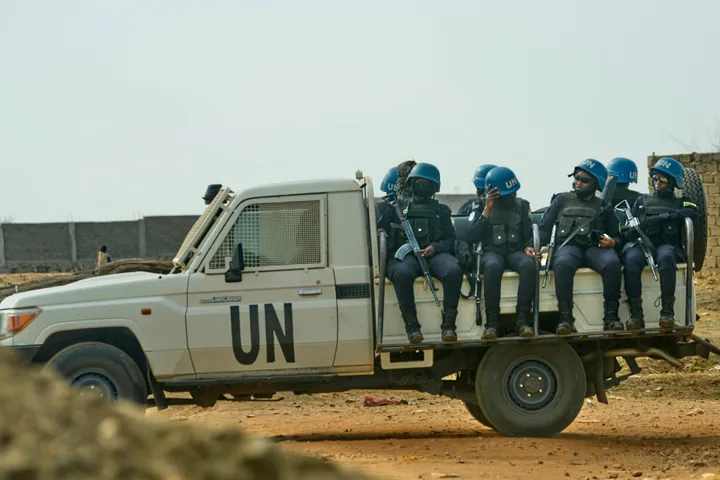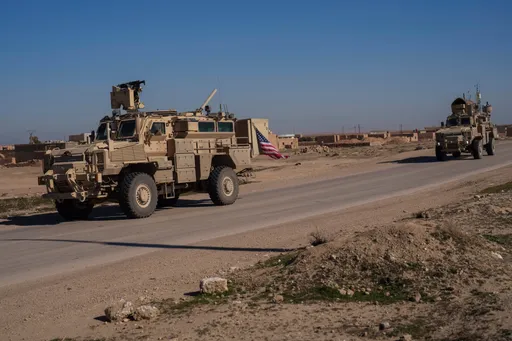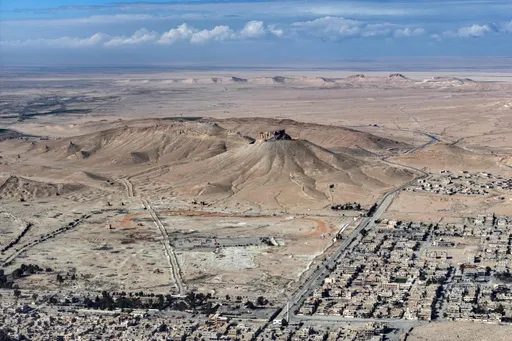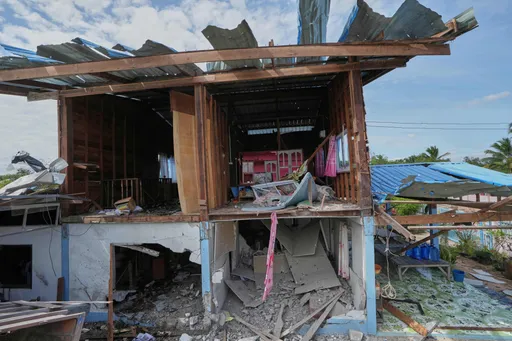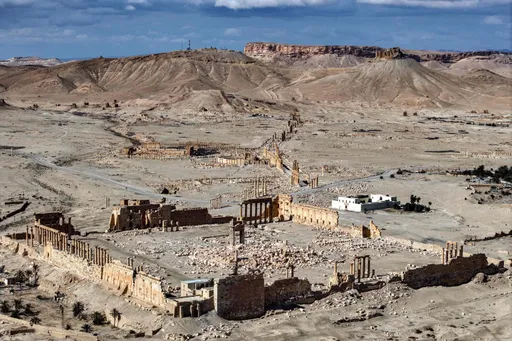Ever since the emergence of the Zionist movement in the late nineteenth century, its main purpose has been to uproot the Palestinian people from their ancestral home and replace them with scattered Jewish communities from around the world.
Since its founding in 1948, Israel's strategy has been to create alternate facts on the ground using its military might and terror tactics to force a Palestinian surrender or ethnic cleansing.
As the newly-founded Zionist state occupied 78 percent of historical Palestine during the 1948 Nakba, more than 750,000 Palestinians were forcefully driven out from their villages, towns and cities, which constituted at the time nearly 90 percent of Palestinians within the so-called "green line".
While about 150,000 Palestinians remained, their descendants today constitute 2 million people, or 21 percent of the current population of Israel, where they face institutionalised discrimination and exclusion.
According to a UN report, the number of Palestinians in Gaza before the Nakba was around 80,000, while 420,000 people lived in the West Bank.
But as many displaced Palestinians in 1948 were forced to flee to Gaza, the West Bank and surrounding Arab countries, the number of Palestinians in these areas today numbers 2.3 million in Gaza, 3.2 million in the occupied West Bank, and over 7.5 million in the diaspora.
Before the Nakba, the number of Jewish colonisers had risen sharply through British collusion and illegal immigration – from around 50,000 when the British occupied Palestine in late 1917 to about 650,000 in 1948.
However, during its 1967 invasion, Israel occupied the remaining 22 percent of Palestine and started an aggressive settlement policy for Israeli Jews, particularly in the occupied West Bank and East Jerusalem.
Today, the total number of colonisers in these areas is estimated to exceed 750,000. Currently, the number of Israeli Jews in all of Palestine – Israel, the occupied West Bank and Gaza – is about 7.2 million.
Hence, the total number of Palestinians between the Jordan River and the Mediterranean Sea now has actually exceeded the number of Israeli Jews by at least 300,000.
Fascist regime, fascist agenda
As a settler-colonial and supremacist society, it is this salient fact regarding the demographic challenge that propelled the current fascist Israeli government to accelerate a bellicose Israeli settlement plan in the occupied West Bank when it took office a year ago.
Last year, despite international condemnation, the extremist Israeli government approved tens of thousands of new construction units for settlers in the occupied West Bank, signifying an increase that has not been seen in decades.
Hamas thus explained that its October 7 operation was a direct response to this aggressive settlement policy, as well as to the frequent hostile incursions and desecration of the Al Aqsa Mosque in Jerusalem by Israeli settlers throughout the last year.
But in its brutal response to the Hamas attack, the Israeli government has embarked on a genocidal war of extermination against the Palestinian people of Gaza unseen in its intensity since World War II.
After almost three months of continuous indiscriminate bombardment, Israel has killed at least 22,000 Palestinians, including over 9,000 children and 6,500 women. In addition, at least 7,000 people remain missing, buried under rubble, while over 56,000 have been injured, many for life.
Israel has targeted hospitals and healthcare facilities, schools and universities, factories and farms, bakeries and shops, mosques and churches, electric power grids and water desalination plants, public buildings, parks and streets, as well as over 60 percent of Gaza's residential buildings and infrastructure.
Its genocidal war has also implemented a starvation policy, in which food and water supplies are prevented from entering Gaza, in addition to denying access to medicine and other critical resources for the desperate civilian population, half of whom are children.
Over 85 percent of Gaza's residents have become homeless or displaced.
According to UN agencies, the suffering in Gaza has reached unprecedented levels. Thus, the real aim of Israel's vicious war is to make life in Gaza uninhabitable, to force the surrender or the massive displacement of Palestinians there.
Recently, Israeli Prime Minister Benjamin Netanyahu laid out in an op-ed piece in the Wall Street Journal his three goals for waging his genocidal war on Gaza: "Hamas must be destroyed, Gaza must be demilitarised, and Palestinian society must be deradicalised."
It is typical of settler-colonial states to use such belligerent language and exhibit arrogant behaviour when describing their policies and actions against the indigenous population.
For centuries, Western powers used similar denigrating rhetoric when committing murderous acts against their colonial victims in Algeria, Libya, the Congo, Ethiopia, Indonesia, India, Vietnam, and South Africa, among many other nations.
Israel, in this respect, is no different. Its leaders speak in an arrogant supremacist tone while demeaning and vilifying their victims.
All Israeli leaders, from David Ben Gurion to Golda Meir, Yitzhak Rabin to Menachem Begin, Shimon Peres to Yitzhak Shamir, and Ariel Sharon to Netanyahu, have used language that denigrates the Palestinians.
The present Israeli leaders are no exception.
But are Netanyahu's goals achievable? Can Hamas be destroyed? And can Gaza be demilitarised, or more broadly speaking, will Palestinians surrender their right to resist their occupiers?
Voice of Palestinians
Whatever one may think about the movement, one cannot deny that Hamas is a genuine resistance movement that has not only been at the forefront of resisting Israel's brutal occupation for decades but also enjoys broad support among Palestinians.
It won the last democratically-held election in the Palestinian territories in 2006.
And in a recent poll, Hamas (along with other resistance movements) has become by far the most popular movement within Palestinian society.
In the poll, over 72 percent of Palestinians said they identified with Hamas's actions, or consider them to be the party they favour or expect to govern. If elections were held today, Hamas would win the legislative and presidential elections in a landslide.
Adding to Netanyahu's goals, the Israeli war cabinet has set out three similar military and political goals: To dismantle the military capabilities of Hamas and Palestinian Islamic Jihad, to dislodge Hamas from ruling Gaza, and to free the Israeli captives without engaging in any Palestinian prisoner exchange.
But the Israeli military campaign has thus far failed to achieve any of its goals.
Hamas and the resistance groups have not only been able to stand their ground and inflict heavy casualties on the Israelis, but they have even been able to continue firing their long-range rockets at Israeli towns and cities, including Tel Aviv and Ashkelon.
Palestinians have come to view Hamas and the other resistance movements as genuine representatives of their society and their collective determination to struggle against occupation and subjugation.
These movements have, therefore, come to embody the idea of resistance, which has only become further entrenched within their society, and so any attempt to extinguish or dismantle it is destined to fail.
Israel wants to continue its policy of dispossessing and subjugating the Palestinians to carry out its settlement programme without any resistance or repercussions.
It wants to demilitarise Gaza to make any meaningful resistance against the occupation ineffective and mute.
But Palestinians know all too well that their right to resist occupation and colonisation is enshrined in international law.
In 1960, the UN adopted resolution 1514, "Declaration on the Granting of Independence to Colonial Countries and Peoples".
It stated that "All peoples have the right to self-determination" and that "the subjection of peoples to alien subjugation, domination and exploitation constitutes a denial of fundamental human rights and is contrary to the Charter of the United Nations."
Moreover, in 1970, the UN adopted resolution 2625, which called on its members to support colonised people or people under occupation against their colonisers and occupiers.
In fact, in 1974, UN resolution 3246 reaffirmed "the legitimacy of the people's struggle for liberation from colonial and foreign domination and alien subjugation by all available means, including armed struggle".
And in 1978, the UN resolution 33/24 also strongly confirmed "the legitimacy of the struggle of peoples for independence, territorial integrity, national unity and liberation from colonial and foreign domination and foreign occupation by all available means, particularly armed struggle," and specifically "strongly condemned all governments" that did not recognise "the right to self-determination to the Palestinian people".
Not only is the goal of demilitarising Gaza immoral and illegal, it is also unattainable.
Palestinians have been resisting their occupiers for decades and have vowed to continue their struggle by all means.
If anything, their recent sacrifices in Gaza serve as a testament to their determination and resolve against Israel's attempt to force them to surrender their struggle for freedom and independence.
Israel's unattainable goal
But Netanyahu's colonial attitude and supremacist posture could not have been more on display than in his stated quest to "deradicalise Palestinian society".
Both Franz Fanon and Edward Said inform us how language as a cultural tool could be utilised by the coloniser to subjugate the colonised.
Netanyahu, in his classical arrogant style, wants to shape Palestinian perception of history, reality, and memory to accommodate the Zionist enterprise, a tall order that can never be accomplished unless a substantial number of the colonised is exterminated or banished.
He knows that this goal is unattainable, so he uses it to obstruct any political concessions.
In the article, Netanyahu argues that a "deradicalisation process" needs to take place within Palestinian society as one had taken place in "Germany and Japan after World War II," where today "both nations are great allies of the US".
Such a comparison could not be more absurd.
While the allies were sovereign states at war with Germany and Japan, Israel is a colonial-settler state that replaced an existing state, Palestine, which was under British occupation and uprooted its indigenous population.
In addition, Germany and Japan had to adopt new political systems in line with Western liberal values, while Israel wants the Palestinians to accept its racist ideology and Jewish supremacist doctrine.
Moreover, as part of its deradicalisation programme, Israel has often asked Palestinians to disavow their identity and history and give up their deeply held beliefs and sacred sanctuaries. This is a bizarre proposition.
After more than a century of continuous Zionist assaults on Palestinians' humanity, history, culture, and land, which have culminated in the extermination war taking place in Gaza, the resounding response of the Palestinian people to Netanyahu's three imperatives can best be summarised by Nelson Mandela's declaration when he faced his country's colonisers: "I will not leave [my country], nor will I surrender. Only through hardship, sacrifice and militant action can freedom be won. The struggle is my life. I will continue fighting for freedom until the end of my days."




